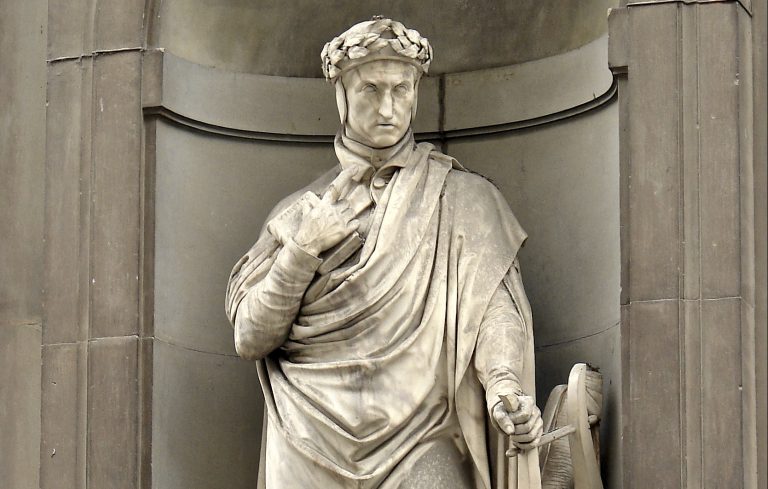In “Theology for Millennials,” Father Mario Arroyo Martinez shares with Exaudi’s readers his article “Francis and Dante”, regarding the Holy Father’s recent Apostolic Letter.
* * *
Francis and Dante
The Pope just published an interesting Apostolic Letter entitled Candor Lucis Aeternae, on the occasion of the 700th anniversary of the death of the great poet Dante Alighieri. It’s worth taking a look at it, as it is in the line with what Dostoevsky affirmed: “beauty will save the world.” In Dante’s case, moreover, it’s a beauty nourished by faith and that leads to it. In fact, he captured admirably the Christian epic in his masterpiece: “The Divine Comedy.”
Dante’s work reminds us “how false it is to think that conformity with God’s mind and heart sever the wings of genius, whereas in reality it motivates and elevates it.” Dante’s vocation is a call to the redemption of art, which often has not only moved away from Christian inspiration but has gloated in transgression, in perversion and in blasphemy.
It is a call both to the “purification” of art, namely, to rethink the divorce between art and morality, as well as to Christian artists, so that their inspiration will drink again from the sources of Catholic revelation.
Dante’s voice not only is important to rediscover spiritual and religious inspiration in the artistic world, but it is also a very timely “prophetic criticism now as it was seven centuries ago, as “he raised his impetuous and severe voice against more than one Roman Pontiff, and reprimanded acridly ecclesiastical institutions and individuals that were ministers and representatives of the Church.”
He didn’t hesitate to place more than one Pope in hell, although in some cases he was clearly mistaken, condemning Saint Celestine V, who would later be canonized. Dante was a faithful layman with a vibrant faith, who suffered because of the Church’s situation, with whom many can identify at present.
The “Divine Comedy” is classical precisely because it’s very pertinent. Now we also need to come out of the “dark jungle of the superfluous” to elevate our spirit, through many trials, to the contemplation of eternity. In this connection, it has a certain persuasive, exhortative character, which invites to a conversation, to a change of life for the good.
In a letter, Dante wrote: “We must state briefly that the purpose of the whole and of the part is the same; to separate mortals while they live down here from the state of misery and lead them to the state of happiness.” Thus he shows us how art can elevate a person to give the best of himself, and not simply expose his lowest depths, as contemporary art is frequently tempted to do. The classical can be a valid reference for the present.
Dante does Theology an immense favor, as he presents beautifully and simply its subtle disquisitions to the public in general. Particularly beautiful and especially encouraging is his description of the Trinity, showing that it has a human Face (because of Jesus Christ). The God Dante offers us has a human face and, Benedict XVI adds, “a human heart.”
The Florentine poet makes accessible to the common people the subtleties of Theology and Philosophy through art, showing how beauty can lead to the truth, often being its necessary ladder.
Dante is also contemporary and highlighted by Francis, given the stellar role he gives three women in his “Divine Comedy”: the Virgin Mary, his platonic love Beatriz and Saint Lucy. The three intercede for Dante so that he can undertake his arduous journey from the depths of hell to the heights of Heaven. They are constantly present in the work, reminding us that man doesn’t save himself, and that love is the most powerful engine to walk and go on.
Francis asks: What can he communicate to us in our time? Does he have something to say to us, to offer us? Can his message still speak to us? And he answers: ”also today he wants to show us the itinerary to happiness, the straight way to live fully our humanity, leaving behind the dark jungle where we lose our direction and dignity.”
In other words, as a good classic Christian, his work speaks to us personally today. Therefore, it’s worth dusting it and rereading it, to present in an accessible way to the young generations.
Translation by Virginia M. Forrester










